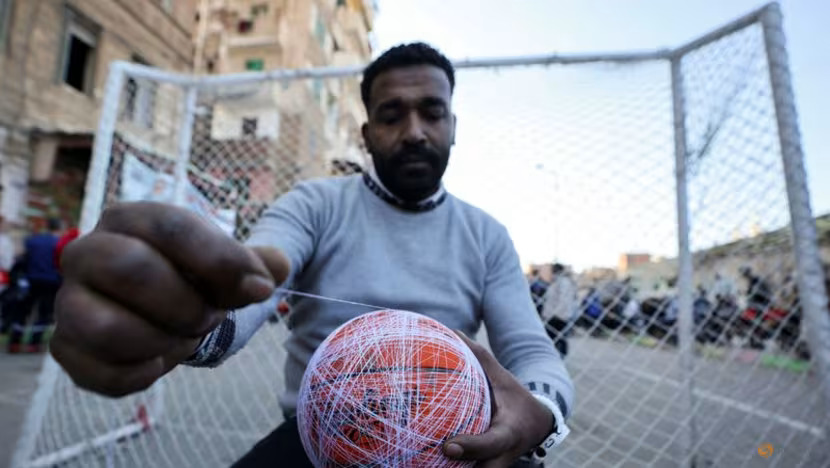
For generations, sock ball has been a staple of Egyptian street culture, offering an accessible and exciting way for young football lovers to play the game. What started as a poor man’s game has now evolved into a cherished football tradition, particularly during Ramadan, when it takes over the streets as a form of celebration.
In the past, sock ball was played with a makeshift ball crafted from old socks and fabric scraps, tightly stuffed together to form a playable shape. This simple yet effective innovation allowed football lovers, regardless of financial status, to enjoy the game without needing an expensive ball. Over time, its has become more than just a pastime—it is a test of skill, a source of community bonding, and an enduring cultural tradition.
A Game Rooted in Simplicity and Passion
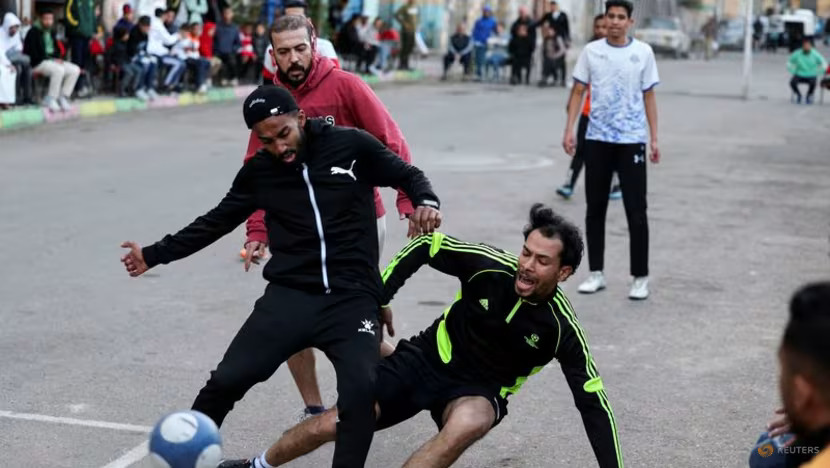
The beauty of sock ball lies in its simplicity. Unlike formal football, which requires a well-maintained field, proper goalposts, and standard footballs, sock ball can be played anywhere—on narrow streets, sandy alleys, or small neighborhood squares. This accessibility is what made it so popular among children and teenagers across Egypt.
“The sock ball in Alexandria is so special, it has its own enjoyment, and honestly, not just anyone can play sock ball,” said Ahmed Youssef, a passionate player from the coastal city.
With no need for fancy equipment or club memberships, socks ball was the perfect game for those who simply loved football. A few players, a makeshift ball, and a clear space were all that was needed.
More Than Just a Game: A Test of Skill and Strategy
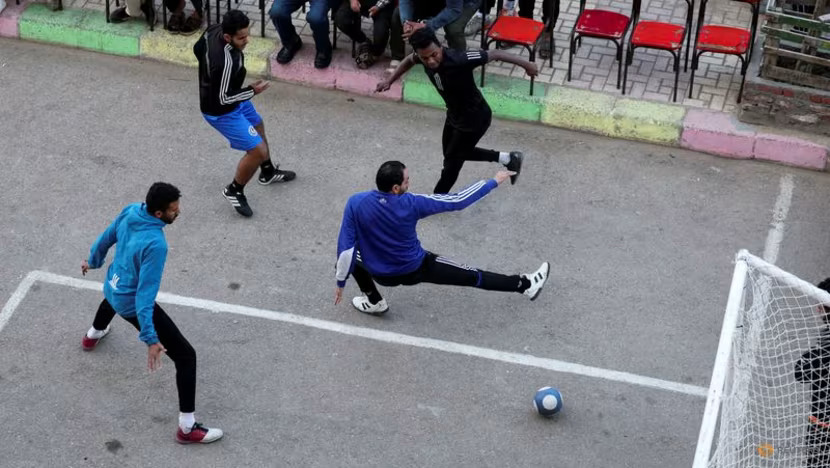
Despite its humble origins, sock ball is a game of incredible skill. The smaller, lighter ball makes control difficult, requiring players to develop impressive footwork, agility, and quick decision-making. Since the game is often played in tight spaces, passing and dribbling become even more challenging, making it an excellent training ground for young footballers.
Ibrahim Abu Al Wafa, who has been a fan of sock ball since the 1960s, described it as a game of intelligence and precision.
“It (sock ball) has its enjoyment and a wide popularity across Alexandria,” he said.
The streets serve as the ultimate training ground, where players learn to think fast, outmaneuver opponents, and execute brilliant moves in tight spaces. Some of Egypt’s best footballers likely honed their skills through sock ball before stepping onto professional pitches.
The Evolution of Sock Ball: From Socks to Threaded Balls
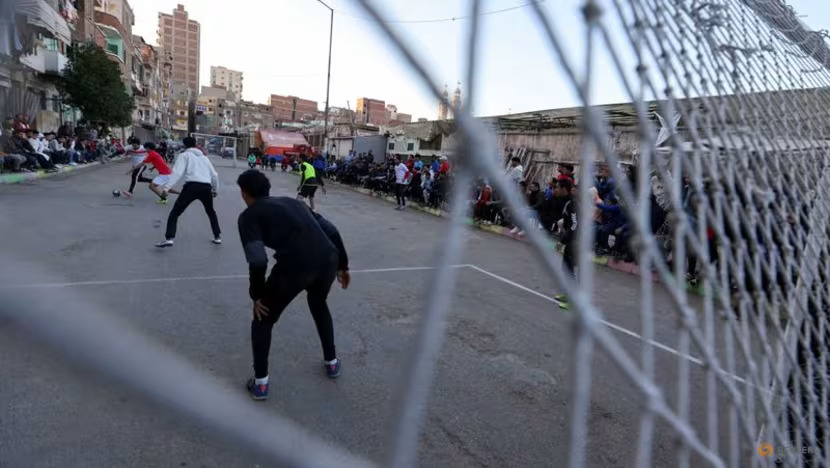
While socks ball has stayed true to its roots, the materials used to play the game have evolved over time. The original sock-stuffed ball has been replaced with duct tape-wrapped balls layered with sewing thread. These modifications provide a more durable grip on the asphalt and make the game even more dynamic.
Mohamed Tarik Amin, who organizes sock ball tournaments, explained how the game has adapted over the years:
“These tournaments have always been popular in Alexandria. Now, instead of socks, players use mass-produced balls wrapped in duct tape for better handling.”
Essam Bakkar, 38, has been making homemade footballs since he was a teenager. He originally used old pieces of cloth and leather but now prefers using mass-produced balls wrapped in thread for a better grip on Egypt’s rough street surfaces.
Ramadan and the Spirit of Sock Ball
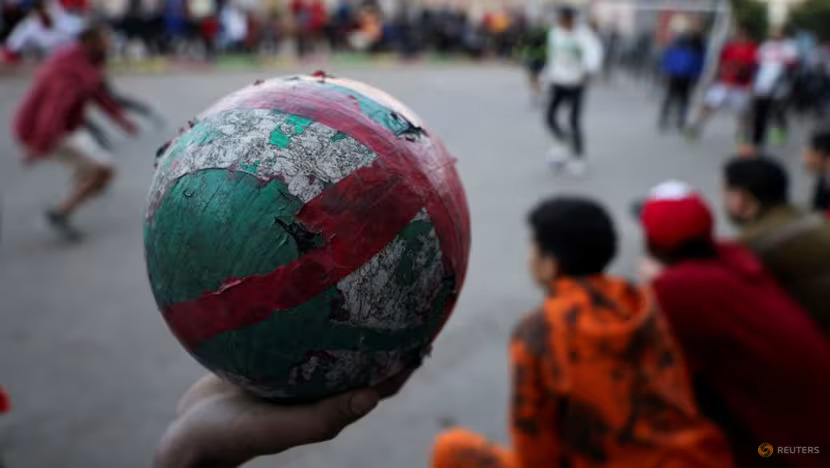
Though sock ball is played year-round, it takes on a special significance during Ramadan. After Iftar, when families finish their evening meal, neighborhoods come alive with socks ball matches. Street corners turn into makeshift football fields, where boys and men gather to play or watch, turning the game into a communal celebration.
During Ramadan, the game is not just about competition—it becomes a social event. Spectators line the streets, cheering for their favorite teams, while players showcase their best moves. It’s a time when football unites people, regardless of age or background.
“Since a very long time ago, sock ball has been important here,” Amin emphasized.
The excitement, energy, and friendly rivalries that come with socks ball tournaments create a unique Ramadan atmosphere that continues late into the night.
The Cultural Impact of Sock Ball in Egypt
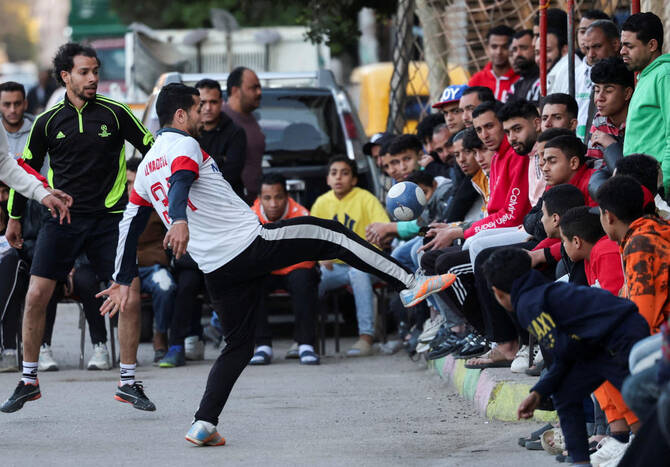
Sock ball is not just a sport—it is a reflection of Egyptian culture. It represents resilience, creativity, and the unbreakable love for football that exists across all social classes.
For many Egyptian youth, socks ball is the first step toward professional football. The fast-paced nature of the game builds technical skills and mental sharpness, both of which are crucial for success on larger pitches.
As Egypt continues to produce top football talent, it is likely that many of these players first learned their craft through sock ball. The game’s ability to turn small streets into football arenas proves that passion for the sport outweighs financial barriers.
A Timeless Tradition That Continues to Thrive
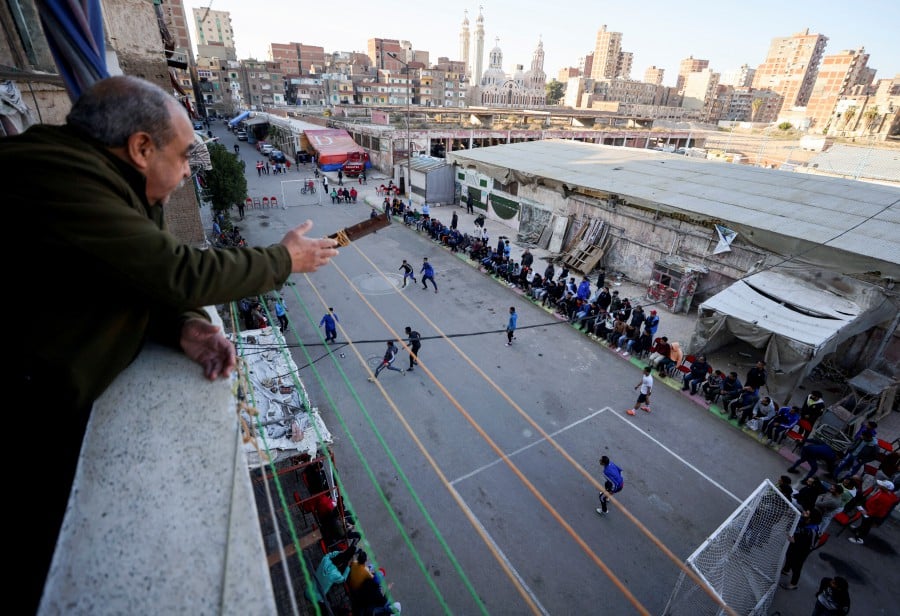
Despite the rise of modern football academies and expensive training facilities, socks ball remains a beloved tradition in Egypt. It serves as a reminder that the essence of football is not about money or prestige, but about the love of the game.
Whether played by young boys dreaming of becoming professionals or by men reliving their childhood, sock ball continues to be a source of joy, community, and skill development.
SUGGESTED FOR YOU
Hugo Broos Warns Bafana Bafana: “We Must Avoid Doing Stupid Things”
As football evolves with billion-dollar transfers and high-tech stadiums, sock ball stands as proof that the sport’s heart remains in the streets, where all you need is a ball, some friends, and a passion for the game.









